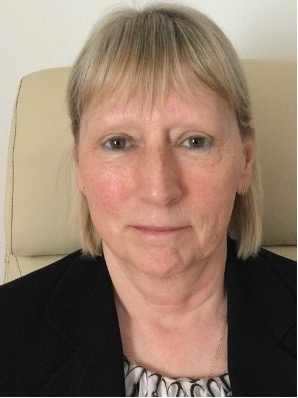Innovation
RAPID: Implementing a digital infrastructure and pathway for improving time to treatment in brain cancer
Competition
NHS Cancer Programme – Innovation Open Call 1

Name & role of Project Lead
Christine Rowland, Chief Operating Officer Organisation, Orion MedTech Ltd. CIC
Twitter: @orion_medtech
Clinical Problem
Co-ordination of definitive cancer treatment from initial diagnosis can lead to delays until a final treatment plan can be established. This is particularly challenging with centralisation of tertiary cancer services requiring co-ordination across multiple sites with approximately 20,000 patients considered annually within a brain cancer multi-disciplinary team (MDT).
At present, patients diagnosed with a brain tumour face a median waiting time of 31 days before surgery. The consequences of such delays are significant: one-quarter of patients experience deterioration while waiting for surgery. Those who deteriorate before surgery experience hospital stays that are twice as long with worse treatment outcomes compared to patients who receive timely interventions. These findings highlight the need to reduce delays in brain tumour treatment, offering an opportunity for the RAPID project to improve patient outcomes and care quality.
Proposed Solution
The RAPID project has established regional digital infrastructure and an optimised clinical pathway for initial management of brain tumours. The platform enables initial brain tumour referrals to be screened and triaged prior to specialist consideration by an MDT. This enables clinical review, MDT discussions, and further diagnostic tests to be conducted in parallel across different sites, thus eliminating inefficiencies and delays. Treatment planning is also stratified through a dashboard to enable clinical prioritisation and flagging of any breaches in treatment targets.
Data acquired during this process creates a unique and global perspective of the patient pathway encompassing KPIs and clinical outcomes, as well as enabling continuous evaluation, evolution, and quality improvement. Ultimately, patients and service users benefit by receiving faster, personalised, and effective neuro-oncology care. The RAPID care model and digital platform are scalable and can be readily adapted to different cancer types.

Market traction & Implementation
• Our work builds on the Innovate UK-supported DAMSEL project which has been operational within the Eastern and North West regions for five years. DAMSEL’s outputs were recognised through a Macmillan Service Excellence Award in 2018.
• An independent evaluation by health economic consultants will support market traction within the wider NHS.
• Our solution is currently implemented in the Eastern regional cancer network (Cambridge University Hospitals NHS Foundation Trust, East Suffolk and North Essex NHS Foundation Trust, Norfolk and Norwich University Hospital NHS Foundation Trust), and The Walton Centre NHS Foundation Trust.
Impact - patient outcomes and experience
• Our work builds on the Innovate UK-supported DAMSEL project which has been operational within the Eastern and North West regions for five years. DAMSEL’s outputs were recognised through a Macmillan Service Excellence Award in 2018.
• An independent evaluation by health economic consultants will support market traction within the wider NHS.
• Our solution is currently implemented in the Eastern regional cancer network (Cambridge University Hospitals NHS Foundation Trust, East Suffolk and North Essex NHS Foundation Trust, Norfolk and Norwich University Hospital NHS Foundation Trust), and The Walton Centre NHS Foundation Trust.
Impact - Service delivery
• RAPID’s framework of a comprehensive screening process ensures that referrals are complete and include all necessary information upfront. This eliminates the need for clinicians to spend valuable time discussing incomplete referrals during MDT meetings. As a result, MDT discussions become more efficient, focused, and productive, allowing clinicians to concentrate on developing optimal treatment plans.
• Interoperability and electronic sharing of patient records across hospital sites alerts local teams to new cases, enabling them to start the specialist assessment process sooner and provides more accurate information to the MDT. Furthermore, it avoids duplication of investigations across hospital sites, such as MRIs, saving time and money.
"RAPID acts as an important safety net and highlights patients that need to be seen promptly, preventing delays in the brain cancer pathway."
Anna Mannina, Neuro-oncology Clinical Nurse Specialist
Date Published
September 2023

